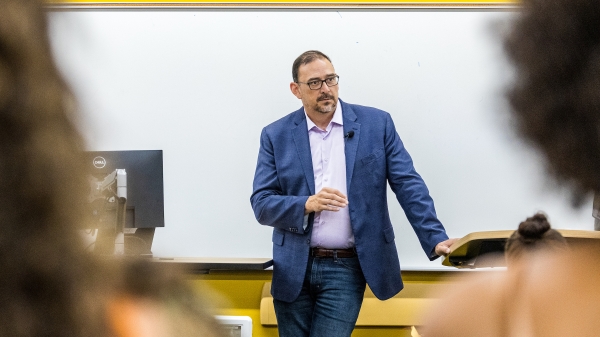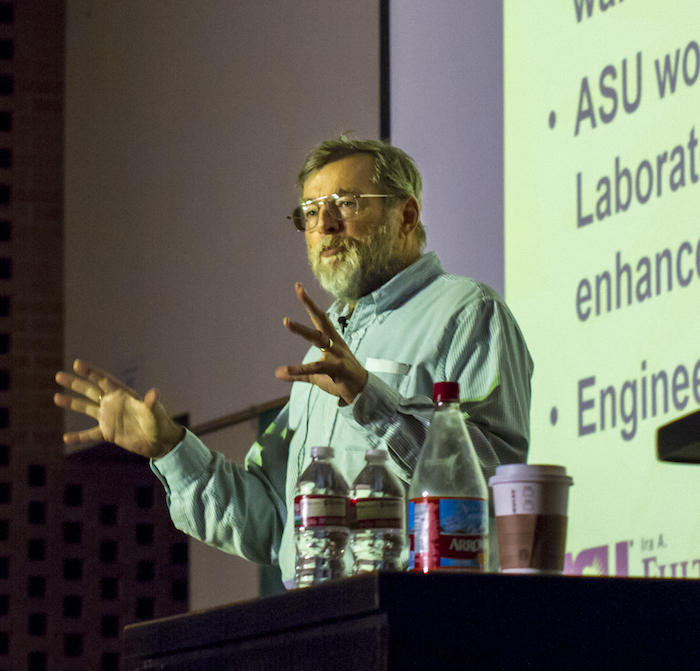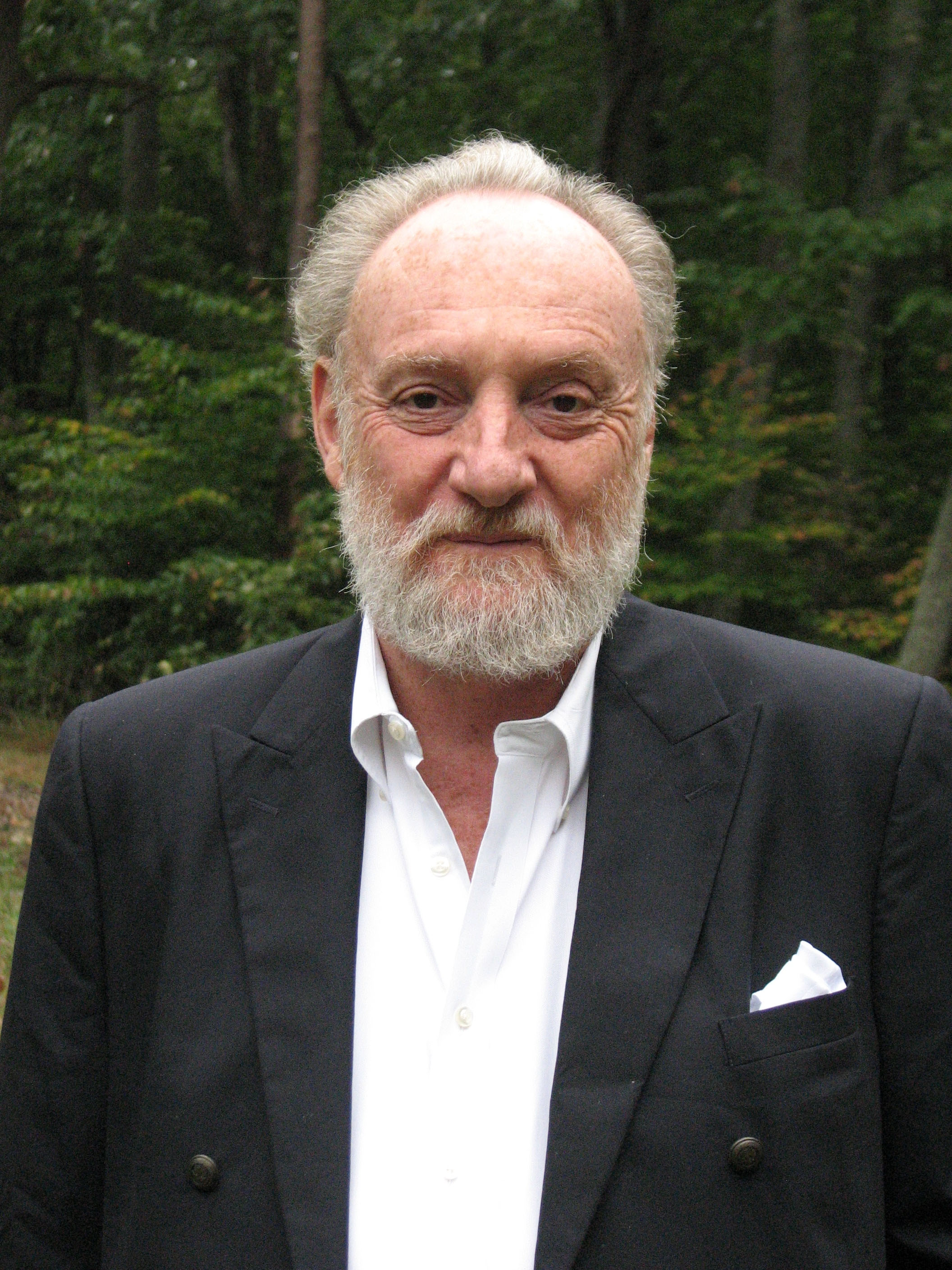Dramatic leaps in the quantity of information and the speed of its delivery may be spawning some of the most fundamental cultural changes in history spurred by advances in technology, according to Arizona State University Professor Brad Allenby.
Much of what this portends is good, but there are now clear signs that some of what it has wrought is a platform for the launching of “what you could call Propaganda 3.0,” he said.
What Allenby and some of his colleagues are calling it more precisely is “weaponized narrative.”
The full definition of the concept is a work in progress, but it generally describes technologically and psychologically sophisticated efforts to manipulate groups of people, and even nations, socially and politically through the spread of distorted information, or “false narratives.”
"By creating the stories and controlling the narratives over time, it’s being shown that you can significantly turn public opinions and attitudes in different directions,” Allenby said.
By skillful use of social media, the internet and other communications venues with nearly instantaneous global reach, it has become much easier to target members of specific groups with messaging craftily scripted to shape their outlook on the world — think, for instance, of the purveyors of “fake news.”
“What you can do with the help of today’s technologies is essentially isolate like-minded communities and feed them messages, images or ‘news’ tailored to reinforce what those communities are already inclined to believe,” Allenby said.
Battles waged with words and images
Weaponized Narrative Initiative co-director Brad Allenby says the constant spread of misinformation can be corrosive to society. Photo by Jessica Hochreiter/ASU
The strategy itself is nothing new, he adds. The difference is that with the lightning quickness and far-reaching saturation of today’s mass media, communities can be set against each other more effectively.
“So what you now have is an erosion of connections between citizens who may have long had different outlooks on public issues but were at least united on some basic ideals and principles,” said Allenby, an ASU President’s Professor of civil, environmental and sustainable engineering in the university’s Ira A. Fulton Schools of Engineering.
He is also a professor of engineering and ethics in ASU’s Lincoln Center for Applied Ethics and author of the recent book “The Rightful Place of Science: Future Conflict and Emerging Technologies.”
Allenby is now teaming with Joel Garreau, professor of law, culture and values in ASU’s Sandra Day O’Connor College of Law and a former long-time award-winning Washington Post journalist, to establish and co-direct the Weaponized Narrative Initiative, which will operate under the umbrella of the Center on the Future of War at ASU in collaboration with New America.
“We are at an inflection point in history. A new battlespace and a new civilization are being born,” Garreau said. “With our two directorates, research and operations, the Weaponized Narrative Initiative is an early attempt to understand what’s going on, and then do something about it.”
Diverse team is taking on the challenge
The Center on the Future of War focuses on research, education, public policy studies and analysis of the social, political, economic and cultural implications of the changing nature of war and conflict.
New America is a combination think tank, policy research institute, technology laboratory, public forum and media platform, committed to “renewing American politics, prosperity and purpose in the Digital Age.”
Initiative co-director Joel Garreau says false narratives are part of the new “battlespace” in modern information warfare. Photo courtesy of The Garreau Group
With those partners, Allenby and Garreau hope to work with other researchers to embark on intensive study and analysis of the rise of weaponized narratives.
They also will be aided by a team of faculty from ASU and other universities with expertise in politics and global studies, international security, strategic communication and media technologies, including several who have served with the U.S. Marine Corps and Air Force who have expertise in national security and intelligence operations.
They want to produce white papers, conference presentations and platforms for education and discussion with the aim of finding ways to counter the impacts of narratives constructed to plant seeds of political and social destabilization.
Allenby and Garreau recently outlined their view of the threat and the challenges of defending against it in an article titled “Weapon Narrative is the New Battlespace,” posted on Defense One, a website dedicated to news and analysis of national security issues, as well as ideas from strengthening security.
The new initiative’s mission was further explained at the recent Future of War Conference 2017 in Washington, D.C., at which Allenby gave a presentation to an audience that included U.S. Department of Defense, Central Intelligence Agency and White House officials.
Undermining trust in ‘applied rationality’
One aspect of the security threat is rooted in the unprecedented capabilities of our technological advances.
For all the advantages of “smart” devices and systems embedded in phones, buildings, infrastructure, cars, computer networks, consumer products and more, “many of these things are susceptible to being used as tools of information warfare,” Allenby said.
Engineers, scientists and industry that are expanding the capabilities of such technologies must be more aware of how they can “unintentionally create vulnerabilities” that compromise cybersecurity. But what we are dealing with is “something more than the Russians hacking into information to mess with an American election,” Allenby said.
From a social psychology perspective, we are witnessing the reverberations of people throughout the world being confronted with a much more complex and thus often more confusing and frightening world than in the past.
Frustration and disorientation over the loss of life’s seeming simplicity is opening susceptibility to aggressively manipulative narratives that seek to undermine knowledge and understanding “to such a degree that applied rationality is no longer a trusted way to discern the truth,” Allenby said.
“Now you’re watching a rejection of rationality and the validity of scientific findings as sources of truth in favor of these politicized narratives that reinforce highly partisan viewpoints,” he said.
In a recent article on the website of Fifth Domain, a cybersecurity and defense news outlet, Allenby was quoted about how such trends of rejection and denial of facts gives tech-savvy creators of disinformation openings to influence large populations.
The thrust of the Weaponized Narrative Initiative’s work will be to find ways of breaking through the power of these narratives and reversing our self-destructive societal fragmentation.
Top image courtesy of the Weaponized Narrative Initiative
More Law, journalism and politics

New report documents Latinos’ critical roles in AI
According to a new report that traces the important role Latinos are playing in the growth of artificial intelligence technology across the country, Latinos are early adopters of AI.The 2024 Latino…

ASU's Carnegie-Knight News21 project examines the state of American democracy
In the latest project of Carnegie-Knight News21, a national reporting initiative and fellowship headquartered at Arizona State University’s Walter Cronkite School of Journalism and Mass Communication…

Arizona secretary of state encourages students to vote
Arizona Secretary of State Adrian Fontes looked right and left, taking in the more than 100 students who gathered to hear him speak in room 103 of Wilson Hall.He then told the students in the Intro…


